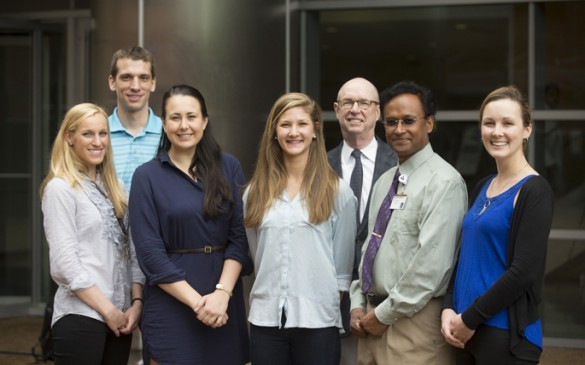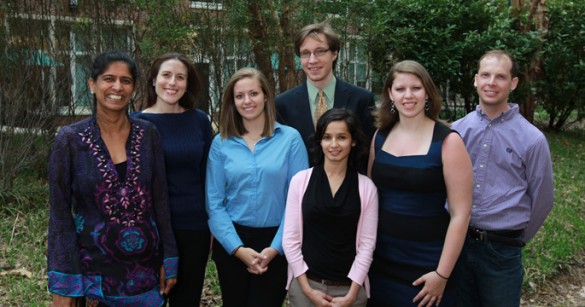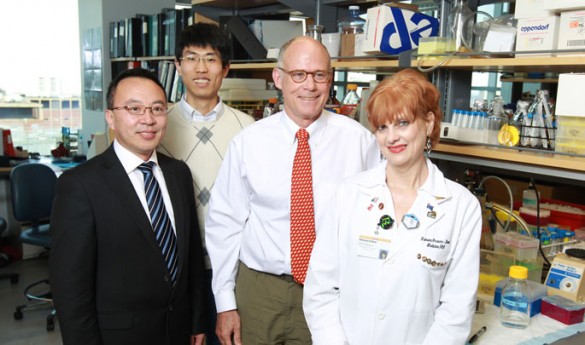
by Barbara O’Brien
A strategy for commercializing a potential new test for colon cancer that can make tumor cells “glow” won top honors at last week’s TechVenture Challenge.
Now in its fifth year, the Vanderbilt University initiative teaches students how to bring patented “inventions” by Vanderbilt faculty members to market.
This year four teams of graduate, business and law students presented business plans for products in agriculture, general health and wellness, patient risk assessment and cancer detection to a panel of judges with expertise in technology entrepreneurship.
The competition, held April 8 at the Nashville law firm Bradley Arant Boult Cummings, was sponsored by the Vanderbilt Center for Technology Transfer and Commercialization (CTTC) and the Life Science Tennessee Academic Alliance, part of Life Science Tennessee.
The winning team, named First Diagnostics, pitched Corafix (fluorocoxib A), a fluorescently labeled selective inhibitor of the COX-2 enzyme developed by Vanderbilt scientists. COX-2 is overexpressed in many cancers, including colorectal cancer.
Conventional colonoscopy, a technique for visualizing cancerous growths inside the colon, may miss small tumors, said Kelsey Beavers, a graduate student in Materials Science and the team leader. Surgical removal of larger tumors also is difficult because the margins of the cancer cannot be visualized precisely.
Corafix increased the accuracy of conventional colonoscopy in animal studies when given 24 hours before the procedure. Under a special light, cancerous and pre-cancerous cells that bound
Corafix now “glowed,” enabling better visualization.
If confirmed by clinical testing, the technique would be cost-effective, Beavers said, because hospitals would need to buy only an attachment to the light they already use to visualize the label, rather than purchasing all new equipment.
Corafix was developed by Md. Jashim Uddin, Ph.D., research assistant professor of Biochemistry and scientific mentor of First Diagnostics team, and Lawrence Marnett, Ph.D., associate vice chancellor for Research and director of the Vanderbilt Institute of Chemical Biology.
Other team members were Elizabeth Conrad, graduate student in Molecular Physiology and Biophysics; Michael Feldkamp, Ph.D., postdoctoral fellow in Structural Biology; Biomedical Engineering graduate student Samantha Sarett; and law student Hailey Verano.
“I feel proud of my team of students who made this event a success, and I am very excited about the technology that has attracted tremendous global attention,” Uddin said.
Amy Dix Rock, Ph.D., senior director of Regulatory and Scientific Affairs for Cumberland Pharmaceuticals, served as the team’s business mentor.
Each team member received a $250 prize.















